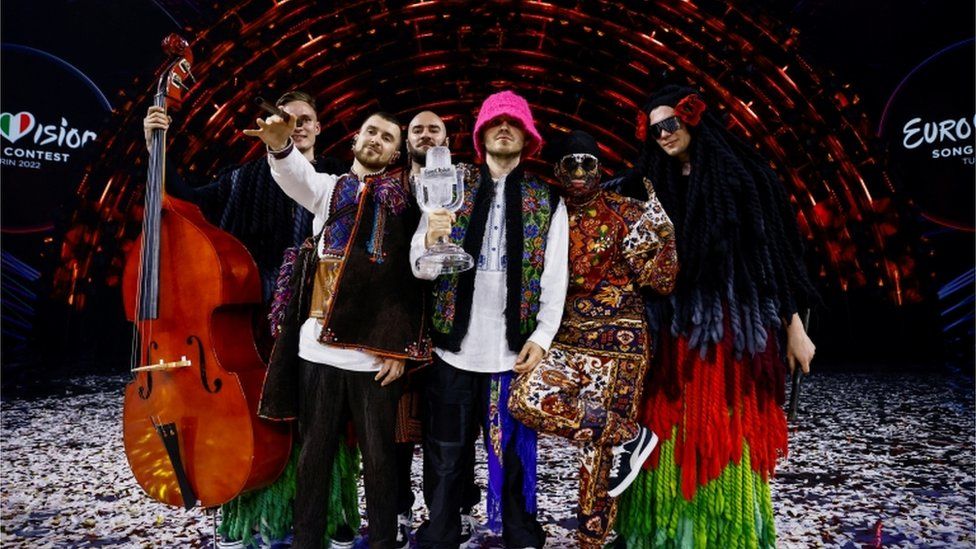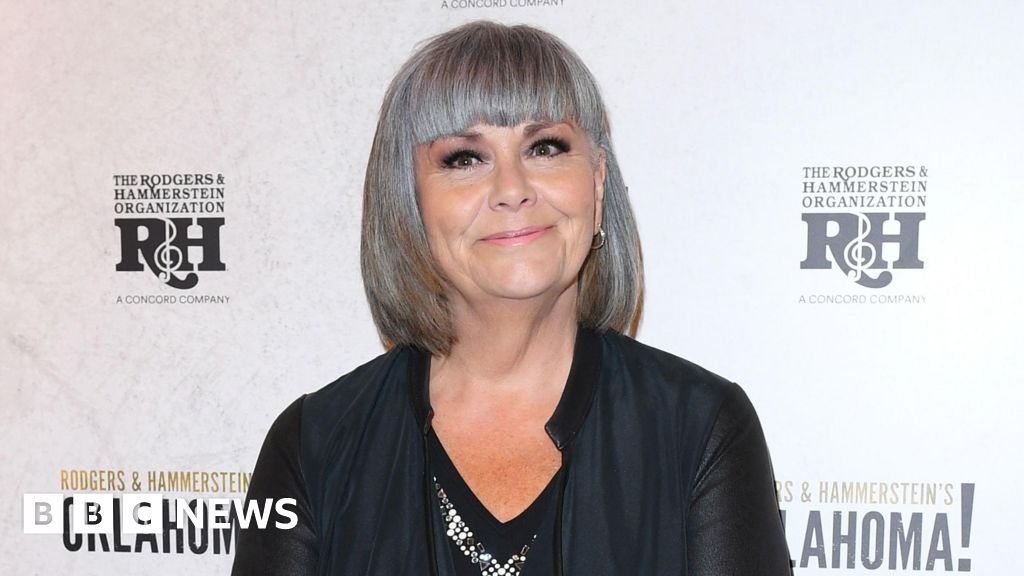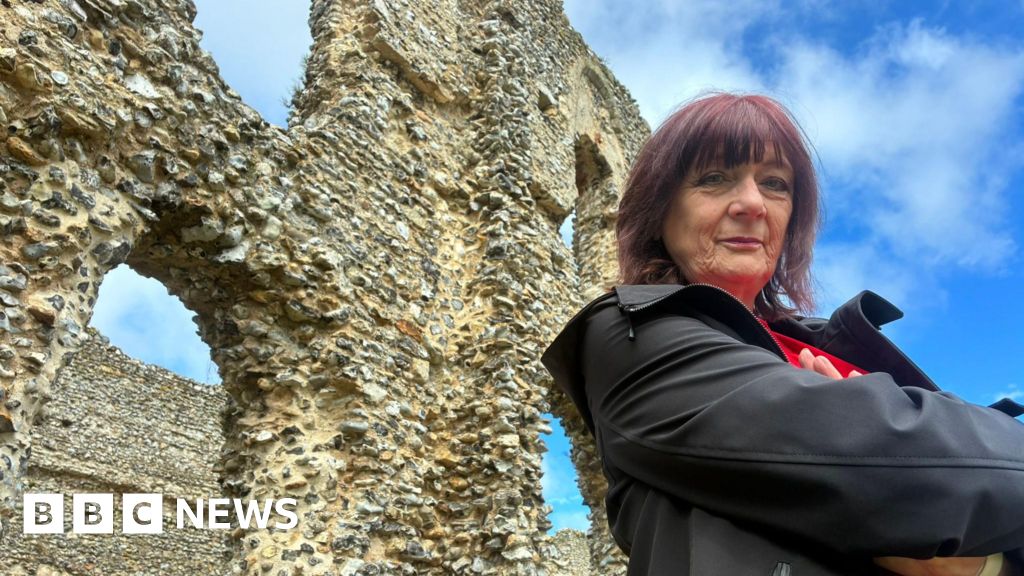ARTICLE AD BOX
 Image source, Reuters
Image source, Reuters
Eurovision is the world's biggest international song contest, and more than 160 million people are expected to watch the final in May in Liverpool.
It began in 1956 as an experiment in joined-up live TV broadcasting but has grown into a huge international spectacle and celebration.
This year, 37 countries will compete, watched by some of the most enthusiastic and animated fans in the world - and for the first time, viewers outside Eurovision countries will be able to join in and vote for their favourite acts.
Ukraine won in 2022, so why is it being held in the UK?
Ukraine's Kalush Orchestra won last year in Turin, Italy, with their song Stefania. The UK's Sam Ryder finished second, with Space Man.
Usually the winning country hosts the next competition. But because of the ongoing war in Ukraine, the European Broadcasting Union (EBU) which organises the contest invited the BBC to host it on Ukraine's behalf.
Liverpool, which gave the world The Beatles, Frankie Goes to Hollywood and The Wombats, has been chosen as the host city, and the contest will take place at the M&S Bank Arena on the waterfront.
This is the ninth time the UK will host the competition and the fifth time it's hosted for other countries due to financial or capacity issues.
When is it?
Eurovision culminates with the massive spectacle of a grand final on Saturday 13 May, but there is a long lead-up which begins on 31 January with the host city handover and the draw to decide which countries will compete in which semi-final.
Many of the countries taking part have also begun the selection process for their participating acts and songs. That's usually completed by mid-March.
The competition itself is made up of three live shows: two semi-finals and the grand final.
This year's semis will take place on Tuesday 9 May and Thursday 11 May. Ten countries from each will go through.
The so-called big five don't take part in the semis - the UK, Italy, France, Spain, and Germany pay more to EBU, and so they are guaranteed a place in the final, along with last year's winners, Ukraine. So a total of 26 countries will be competing for Eurovision glory on 13 May.
Is it's all about Europe, why is Australia in it?
Image source, Getty Images
Image caption,Kate Miller-Heidkes represented Australia in 2019 in Tel Aviv
Eurovision has been popular in Australia since the 1980s, and in 2015 the country was invited to perform as part of celebrations to mark the 60th year of the song contest.
It was such a success that the country was given permission to keep competing until this year at least. Australia also has to pay a fee to the EBU to take part in the same way as other European countries do.
If Australia ever won the competition, there's a special rule in place which states they would have to nominate a European co-host who would stage the competition on their behalf, so no chance of the Eurovision Song Contest taking place Down Under.
There are other countries not in Europe - like Armenia and Israel - who also participate in Eurovision, as they are members of the EBU.
How does the voting work?
The 10 acts going through from each of the semi-finals will be decided solely on public votes. Previously, jury votes were also involved, but not this time around.
In the final itself, the voting is a bit more complicated.
Image source, Getty Images
Image caption,The vote count can be nail-biting
Each of the 26 competing countries has a jury whose members rank all of the countries' performances. They give the top 10 acts 12, 10, eight, seven, six, five, four, three, two or one points. These jury vote results are announced by each country in turn on the night.
Then, calculated from viewer votes, the competing countries give the other contestants 12 to one points in the same way (excluding 11 and 9).
Public votes from the rest of the world will be counted as if they are one other country and allocated as 12 to one points. This is new, so it's the first time people across the globe, not just in Eurovision countries, will be able to have their say.
Together, these decide the overall winner of the glass microphone trophy.
Who pays for it?
Each participating country enters as a broadcaster - for example BBC, RTÉ and RAI, for the UK, Ireland and Italy.
All broadcasters are charged a fee to take part, with the big five paying more than others.
How much each participating broadcaster pays to enter is not made public, but the total cost between all entrants normally adds up to around £5m ($6.2m), with the host paying a further sum.
Bulgaria, North Macedonia and Montenegro, who all failed to make it past last year's semi-finals, have pulled out of this year's competition over money concerns.
Local government in and around Liverpool has committed to £4m for attractions around May's contest, including a fan village with big screens and stages for live music.
On top of that, the UK government says it will also contribute financially. But the bulk of the cost will fall to the BBC as host broadcaster.

 2 years ago
63
2 years ago
63








 English (US) ·
English (US) ·